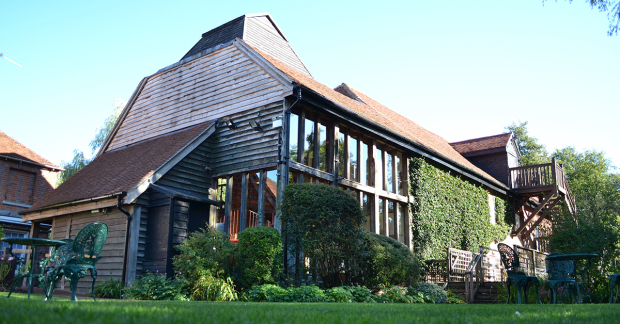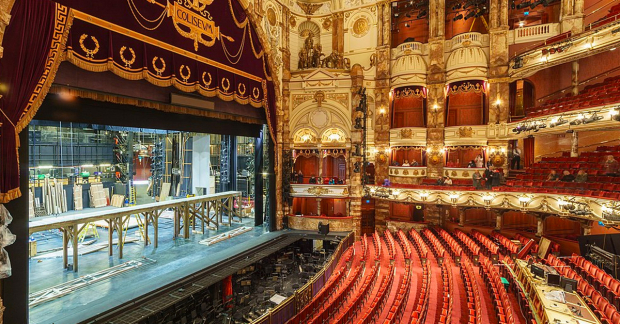Sarah Crompton: The dust has settled after the Arts Council’s announcement – but my fury remains

© Eden Harrhy
The dust has settled after the Arts Council’s brutal redistribution of its national portfolio funding – but my fury remains. There’s so much to be angry about in the aftermath of Friday’s announcement, it’s hard to know where to start.
You can’t precisely blame Arts Council chairman Nicholas Serota or chief executive Darren Henley for carrying out the instructions of a hostile culture secretary – Nadine Dorries – who demanded that £24 million of funding was moved outside London. They are, I suppose, doing their jobs. Nor can you begrudge the fantastic organisations who have moved inside the portfolio for 2023-26. There are some fabulous newcomers (260 in all), doing exciting work, and hats off to them.
Nor can you really blame people who are going hungry, and worrying about feeding their children, heating their homes and paying their mortgages and rents in the grip of the worst cost of living crisis in a generation to fail to take to the streets in outrage about a few theatres and opera companies having their state support taken away.
Yet it’s still possible to feel rage that the Arts Council’s announcement, long feared, was met with such acquiescence. It’s as if, as a country, we are so used to expecting the worst, that fight has ebbed away even from our public statements. The entire national portfolio budget is £446 million. In 2020, our current prime minister Rishi Sunak spent £849 million in a single month on Eat Out to Help Out, a scheme now generally regarded as a wasteful disaster.
One month of that money would have meant that it would have been entirely possible for the Arts Council to support all of the new organisations it has kept in the portfolio, while continuing to support the majority of those it has cut. Hell, they could even have given a few more top-performing organisations extra money.
This is a government prepared to throw money about when it suits them. They wasted £120 million on Unboxed, a post-Brexit festival that has been so ill-conceived and so under-attended that no-one actually remembers that it is still going on.
It is all about priorities. The arts and culture industry generates nearly £11 billion in income for the Exchequer every year. Yet the sector will continue to be treated with suspicion and contempt by a government that does not really believe in their transformative powers – and perhaps distrusts their tendency to promote debate and discussion. This distrust of one of the areas that has made Britain a world-beater has been a scandal for 12 years and does not get any less scandalous just because the entire economy is collapsing. The arts lives on crumbs already.
I think, in the midst of all this, I want to note three things. Every decision to cut funding for an organisation is a choice to take a living away from people. The arts sector is already reeling from the fact that during the pandemic so many of the freelancers who built its sets, who ran its lighting, and who crewed its stages, were forced to take their very adaptable skills elsewhere. They couldn’t survive in the places they wanted to work.
The blows to the artistic infrastructure caused by the NPOs announcement, particularly in London, will continue that process. Trained, skilled and talented people will simply walk away from a career to which they have devoted their entire adult lives. The expertise loss will be huge.
The experience drain will be equally notable; talented theatre-makers and dance-makers now in their 60s, who have lost funding, will be tempted to walk away rather than continue to struggle. The guidance and inspiration that young talent gains from working alongside people who have already built their careers will be lost. Withdrawing funding from established venues and artists is like throwing away years of investment, particularly if they only lost funding because they no longer ticked the required boxes.
Secondly, it is a complete fallacy to think that London is separated from the rest of the country. I grew up in Manchester and began work in the Midlands. I am thrilled by every penny of arts spending that ends up outside London. I know just how important it is for local communities to have access to the arts. But it is just idiotic of the government not to notice the ways that London and its organisations nurture the work that happens outside the capital.
To take one obvious example: the new writers supported by Hampstead, the Gate, and the Donmar (all dropped from the portfolio) make an impact well beyond London, providing work for regional stages. Just as invidiously, Papatango, which exists to support new writing through its productions and its prize, failed to be included because it didn’t meet the Levelling Up for Culture criteria. It’s based in the South, yet its excellence spreads.

© User:Colin / Wikimedia Commons
This is a ridiculous way to treat an arts eco-structure, just as it is ill-considered to believe that any of the problems afflicting English National Opera will be solved by a move to Manchester, which is now the plan. Ironically, that will leave the North arguably over-provisioned with opera while the South sees cuts to the Royal Opera House and Glyndebourne as well as ENO.
It’s also true that companies who are based in one place, often tour to others or allow others to create work. It’s the Glyndebourne touring arm that was supported and has now been cut; English National Ballet which is facing a reduction in grant is a touring company with all the costs that incurs. Sadler’s Wells, which also had a funding cut, supports work across the country and in Europe, a valuable sign of soft power. The National Theatre has made it a priority in recent years to collaborate with theatres in the regions in a succession of successful co-productions, which has enriched the work in both places. Its funding reduction also seems not to notice NT Live, which is one way in which every part of the country has access to hit shows.
My final source of concern is that underlying this round of awards, is a final breach with the post-war consensus on arts funding. There’s no doubt that opera and classical music are the big losers in this funding round; but so are theatres that the Council clearly judges can raise funds from other sources such as the Donmar (trendy, well-to-do patrons), Hampstead (ditto) and the Watermill in leafy Newbury.
At some levels, the assumption in a time of poverty that these organisations will find a way to continue, is possibly fair. But the Keynesian idea was that all art should be available to everybody. On this level playing field, you’d support the work of Company Three (which allows teenagers to tell their own stories and is now – hurrah – an NPO) and the Royal Ballet, which faces a cut, but which represents excellence in its field.
Subsidy used to be a way of opening up opportunities both for on-the-ground talent, devising new work, and for increased access to traditional art forms that might conceivably inspire that young endeavour. I am not very fond of opera and ignorant about classical music though I adore ballet and dance. But whatever my personal view, I recognise that a country that does not value high art is a country in danger of turning its back on the idea of culture for all.
This Arts Council funding round skirts dangerously close to an assumption that if people want a certain type of culture, then they can pay for it; a two-tier approach that says the rich get one thing and the less-well-off can have another. That divisiveness bothers me in my soul.












